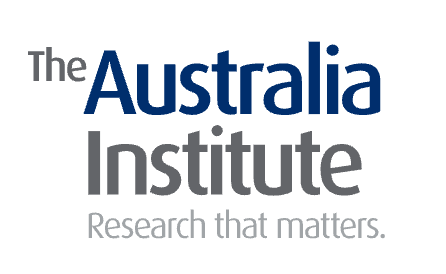FOR IMMEDIATE RELEASE 19 June 2023
The Australia Institute welcomes the Joint Standing Committee on Electoral Matters’ interim report for its inquiry into the conduct of the 2022 election, in which Australia Institute research and recommendations are cited often.
The committee recommends:
- A lower donation disclosure threshold ($1,000, down from over $15,000) and real-time disclosure of donations.
- Caps on political donations and how much can be spent to promote a candidate ahead of an election (“spending caps”), with regard to setting spending caps for independents higher in acknowledgement of the structural support provided to party candidates.
- Truth in political advertising laws modelled on the successful South Australian laws, administered by the AEC, with the committee citing Australia Institute research on how many voters were exposed to misleading ads at last year’s election.
- A new system of increased public funding for parties and candidates, recognising the impact the recommended changes would have on private funding.
- The AEC be supported to increase enrolment and participation, particularly of Aboriginal and Torres Strait Islander peoples.
The majority of the committee calls for donation and expenditure caps for election campaigns, but acknowledges the issue – identified by the Australia Institute’s Advantages of incumbency report – that incumbents have significant electoral advantages, which new entrants have traditionally attempted to overcome using raised funds.
Additional comments from the Greens, Kate Chaney MP and Senator David Pocock identify important considerations for electoral reform, including:
- The case for more parliamentarians, including more senators in the ACT.
- The danger of electoral laws being circumvented.
- A transparency register of political donations.
- The advantages of incumbency to be accounted for in electoral law reform.
- Prohibiting political donations from government contractors and social harm industries.
Coalition MPs issued a dissenting report which disagrees with some, but not all, of the committee’s recommendations.
On truth in political advertising
“Australia Institute research consistently finds that the vast majority of Australians support truth in political advertising laws, and with the committee recommending them there should be no barrier to getting these reforms done at the federal level,” says Bill Browne, Director of the Australia Institute’s Democracy & Accountability Program.
“In Australia, it is perfectly legal to lie in a political ad – and it shouldn’t be.
“The committee’s support for truth in political advertising laws should spur Parliament to pass these laws before the next election, to preempt a fake news free-for-all.
On donation disclosure changes
“Australians have a right to know who is funding our parliamentarians – and real-time disclosure laws and lower donation disclosure thresholds will help make that transparent.
On donation and spending caps
“Piecemeal changes to electoral law, like introducing donation and expenditure caps without changing how candidates are publicly funded, can have perverse outcomes and unintended consequences.
“Because incumbent MPs and parties receive millions of dollars in public funding and entitlements, caps on donations and spending disproportionately affect independents and emerging parties.
“If you cap how much can be spent per electorate, that holds back new independent and minor party candidates building name recognition – while doing little to stop established political parties flooding the market with region-wide party-focused ads.
“Well-intentioned laws purporting to reduce the influence of corporate money could, if poorly designed, have the opposite effect: keeping loopholes open for entrenched interests and existing party funders while pulling up the drawbridge on new entrants.”
Final remarks
“The committee’s interim report identifies important principles for democratic reform, but the devil is in the detail. In addition, the committee has left difficult questions about the size of Parliament and the implementation of these reforms for its final report.
“Calling for more politicians may not be popular, but it’s the right thing to do with Australia Institute polling research finding most Australians have never spoken or written to their local member and would not feel comfortable approaching them if they had an issue.
“Our electoral system is long due for reform, but it must be done carefully with an eye to how every part of the political ecosystem will be affected,” Mr Browne said.
Contact details:
Georgie Moore
Horton Advisory
0477 779 928


